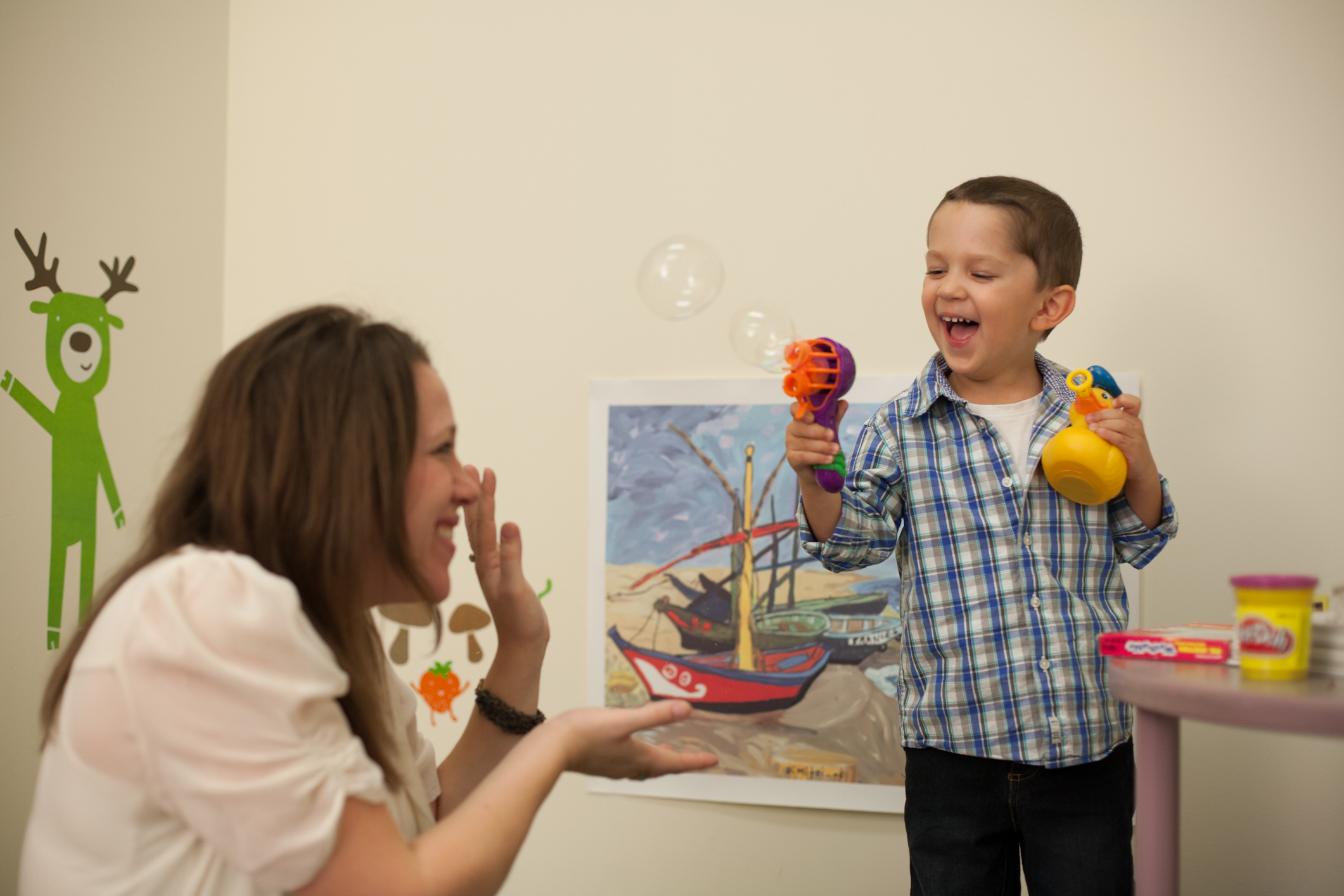Celebrating World Autism Awareness Day: Social ABCs and Early Intervention
April 2, 2019 | News

In an increasingly globalized world, unique approaches to early intervention for autism are becoming possible through enhanced collaboration across national borders.
In honour of World Autism Awareness Day 2019, Kids Brain Health is celebrating our Social ABCs research project, a parent-delivered program guided by a trained parent coach. Targeting children three and under showing early signs of autism or social communication delays, Social ABCs focuses on building positive connections between parents and their children, and encourages the development of communication skills through interaction in everyday activities.
A successful multi-site feasibility study and a trial in day care settings at Toronto’s Humber College prompted the Ontario Ministry of Child and Youth Services to take the lead in funding a three-year community extension pilot now in process with McMaster Children’s Hospital. Kids Brain Health Network (KBHN) is supporting evaluation of the community trial.
“One of the things we’re really interested in through the project that’s been funded by KBHN is we’ll have data from around 120-30 kids who have received the program in the community, says Dr. Jessica Brian, co-developer of the Social ABC’s program. “So it’s not a tightly controlled lab based study – rather we have all sorts of variability within the community, so we can start to look at whether there are any factors that predict outcomes, such as baseline characteristics of the kids or parents that give us a sense of what kids or families may be best suited to the Social ABCs. We know there’s lots of variabilities in response too.”
With a positive randomized controlled trial published, and the community rollout progressing, the Ontario-developed intervention is reaching much further than Dr. Brian could have anticipated when the first pilot feasibility study began in 2007.
“We got an email just the other day from a pediatrician in India who’s asking me about the Social ABCs program, we’ve had interest from China, we’ve had interest from other groups across Canada – most recently in Montreal, so there are lots of people who are hearing about it and are starting to get interested in learning the technique,” says Dr. Brian.
Closer to home, the autism intervention service model is going from a mixed public and private approach to private provision only, in Ontario. “Programs like the Social ABCs could in theory be offered as a private, fee-for-service program through agencies who are going to be providing services,” observes Dr. Brian. Social ABCs is evidence based, “so families would be getting something that we know has the potential to support them and their child,” she adds. “It’s relatively less resource intensive than some other programs. So it has the potential to be cost effective, in the sense that it can generate positive outcomes with less financial investment from government. We’re always struggling in the public system to manage limited dollars.”
Spurred by Canadian and international interest, Social ABCs is evolving through the planned development of a website and online resources for parents. Along with the website, video modules will be produced to support family learning for those enrolled in the program. Down the line, Dr. Brian believes videos can be a powerful tool for those who wish to become Social ABC coaches.
“I don’t see the Social ABCs standing alone as an online component that you can self-teach yourself,” she says. “While the techniques are fairly straightforward and relatively easy to articulate, I think there’s so much variability and nuance in how each and every child and parent adopts the strategy, and specific strengths and needs and what their specific interactional style is. I think it’s very hard to read online material and make it fit for every kid. I feel very strongly that there has to be some sort of individualized support. We’re not sure yet what the minimum is, that will still be useful.”
Capacity is a key element in diffusion of the Social ABCs. The project’s “Train the Trainer” initiative has produced six coaches who now have the skills to train the next generation of staff and increase sustainability of the program.
“The last stage of our online training platform could be where teams can learn to be coaches without any hands-on, or face-to-face, or in-person contact with us. That would be kind of the ultimate goal, to train teams remotely, and then we could have a huge reach in terms of getting it out around the globe,” says Dr. Brian.
Image: Carter and his mother, participants in the Social ABCs program enjoying a playful moment